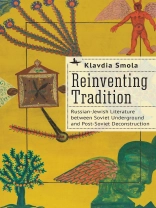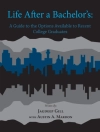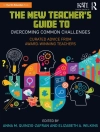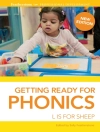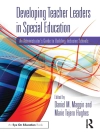How was the Jewish tradition reinvented in Russian-Jewish literature after a long period of assimilation, the Holocaust, and decades of Communism? The process of reinventing the tradition began in the counter-culture of Jewish dissidents, in the midst of the late-Soviet underground of the 1960-1970s, and it continues to the present day. In this period, Jewish literature addresses the reader of the ‘post-human’ epoch, when the knowledge about traditional Jewry and Judaism is received not from the family members or the collective environment, but rather from books, paintings, museums and popular culture.
Klavdia Smola explores how contemporary Russian-Jewish literature turns to the traditions of Jewish writing, from biblical Judaism to early-Soviet (anti-)Zionist novels, and how it ‘re-writes’ Haskalah satire, Hassidic Midrash or Yiddish travelogues.
表中的内容
Acknowledgments
Introduction
Tradition and Innovation in Judaism—Text and Commentary
Semantics of the Posthuman Era: The (Re)Invention of Jewishness
Semiotic Context
Cultural-Historical Context
Poetics of (Anti-)Imperial (Anti-)Assimilation
Research Approaches
Research Trends and Research Deficits
State of the Art
Perspective and Boundaries of the Study
Above the Ground
Refocusing Jewish Studies
Literary History, Poetics, and Cultural Studies
Text Selection: Time and Geography
Russian Jewish Literature as a Bicultural Phenomenon
Jewish Dissent of the Late Soviet Era: Underground, Exodus, Literature
Soviet Jews: Collective Images and Myths
Jews as Translators: Literary Mimicry
Political Context and Literary Reflections of Jewish Counter-Culture: An Overview
Emigration, Literary Institutions, and Readers
Prose of Exodus
“The Excitement of Memory”: Efrem Baukh’s Jacob’s Ladder
The Martyrdom of Refusal: David Shrayer-Petrov’s Herbert and Nelli
Mysticism of the Exodus: Eli Liuksemburg
“The Third Temple”
The Tenth Hunger
Education of the New Jew: David Markish’s Preamble
Late Soviet Exodus Novels: Poetics and Message
Bipolar Models: The Zionist and the Socialist-Realist Novel
Axes of Nonconformist Jewish Literature
Iuz Aleshkovskii: “Carousel”
Grigorii Vol′dman: Sheremetyevo
Feliks Kandel′: The Gates of Our Exodus and Semen Lipkin: Pictures and Voices
Iakov Tsigel′man: The Funeral of Moishe Dorfer
Iuliia Shmukler: “This Last Day”
Negated Dichotomies: The Failed Utopia of Aliyah
Efraim Sevela’s Zionist Counter-Narratives
Iakov Tsigel′man’s Novel-Palimpsest
Time and Space Structures in Nonconformist Jewish Literature
Reinvention of Yiddish Storytelling
Jewish Narrative and Semiotics of Yiddish
Shlemiels and Rogues: Efraim Sevela’s The Legends of Invalidnaia Street
An Old Jewess in a Monologue with the Reader: Filipp Isaak Berman’s “Sarra and the Little Rooster”
Conclusion: Yiddish as a Quote
Aftermath and Impact of Jewish Counter-Culture
Neo-Zionist Essentialist Narratives
Jewish Revival
Russian Jewish Literature after Communism
(Post)Memorial Literature: Palimpsests, Residuals, Reinvention
(Post)Memorial Jewish Writing
Memory as Obsession and Fragment: Izrail′ Metter’s “Family Tree”
(Post)Memorial Topographies: Grigorii Kanovich’s “Dream about the Disappeared Jerusalem”
Jewish Deconstruction of the Empire
Archaic Language of the Dictatorship: Mikhail Iudson’s Dystopia The Ladder onto the Closet
Postcolonial Mimic Man: Aleksandr Melikhov’s The Confession of a Jew
Oleg Iur′ev’s Hybrid Poetics: Peninsula Zhidiatin
Iakov Tsigel′man’s Postmodern Midrash: Shebsl the Musician
Conclusion
Bibliography
Literary Works
Research Literature
Index of Names
关于作者
Klavdia Smola is Professor and Chair of Slavic Literatures at the University of Dresden. She (co-)edited among others The Oxford Handbook of Soviet Underground Culture (2022); (Multi)national Faces of Socialist Realism: Beyond the Russian Literary Canon (special issue of Slavic Review, 2022), and Russia – Culture of (Non-)Conformity: From the Late Soviet Era to the Present (special issue of Russian Literature, 2018).
